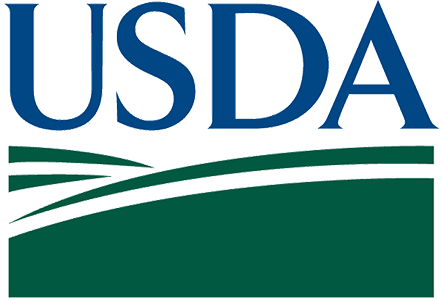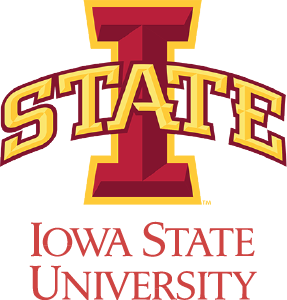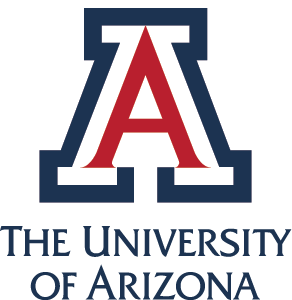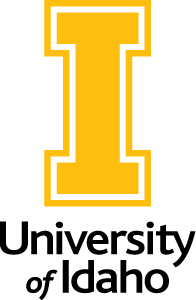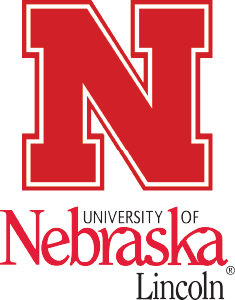Seed Grants - Round 2
Request for Proposals (RFP)
Overview
The Agricultural Genome to Phenome Initiative (AG2PI) was created to address the challenges of agriculture, from genome to phenome, by building a cross-kingdom and multi-disciplinary research community. The seed grant mechanism within AG2PI is intended to foster first steps towards the development of community solutions to research needs and opportunities, as well as gaps in physical infrastructure and data management.
In the second round of funding, we invite proposals that will further develop the AG2PI community in one of the three topic areas described below (see Program Scope). Projects that broaden interactions as much as possible and seek to find synergies across communities and organizational types are highly encouraged (e.g., plants and animals; academics, government, and the private sector). Proposals may be submitted within one of three grant types (Emerging, Enabling, or Establishing) with varying budget limits (see below).
- Anticipated number of awards: 12
- Application Deadline: September 19, 2021
- Anticipated Project Start date: November 29, 2021
- Length of award: 6-12 months for all categories and up to 15 months for Establishing category only
Target budget per award:
- Emerging: Total request of $15,000 not to exceed $20,000
- Enabling: Total request not to exceed $50,000
- Establishing: Total request not to exceed $75,000
Please note: Individual investigator research projects are outside the scope of this call.
Program Scope
The AG2PI seed grant opportunity is focused on supporting one or more of the following priority activities, in particular, proposals for activities that span both plant and animal systems:
- Identify best practices, tools, and techniques for AG2P data sharing and storage.
- Encourage cross-fertilization of existing or novel AG2P tools, data, or ideas.
- Coordinate available educational resources and/or determine best approaches for expanding cross-disciplinary training in AG2P data science/biology/engineering.
- Motivate agriculture-focused analyses of AG2P from ethical, legal, social, ecological, and economic perspectives.
- Develop tools and datasets that can be used across multiple crop species to advance genome engineering tools for integrated optimization of crop yield and livestock feed for improved animal reproduction and nutrition.
- Mitigate environmental impacts from crop and livestock production.
- Encourage development of root stocks that increase carbon capture and can support grain crop cover.
Three additional priority activities -- new to this call -- have been identified by USDA:
Preference will be given to activities or events that are open to participants from outside the proposer's host institution or organization.
Examples of activities that would be responsive to this RFP include -- but is not limited to -- the following:
- Exploring methods and/or defining standards to enable data sharing while maintaining privacy (e.g., federated databases; homomorphic encryption)
- Developing and/or deploying standards or ontologies for AG2P environments and management regimes
- Creating repositories that use optimal data sharing principles
- Developing strategies for handling and integrating disparate data types (multi-scale, multimodal, etc.) across communities
- Building on genomic research, such as the Plant Genome Research Project and the National Animal Genome Research Program, to understand gene function(s) in production environments that is expected to have considerable returns for crops and animals of importance to U.S. agriculture
- Making technology more accessible, particularly to those with limited resources
- Identifying and/or collating needed phenotyping data, tools and technologies
- Engaging relevant and emerging scientific communities that are currently underrepresented in AG2P
- Coordinating shared resources and pursuing collaborative research across industries, countries and species
- Develop training activities tailored to multiple scientific communities and different career stages within AG2P
Eligibility
- Lead proposer(s) (Principal Investigator) must be primarily affiliated with an institution or organization that is eligible for a USDA award. We will be following the eligibility requirements listed in the Agriculture and Food Research Initiative- Foundational and Applied Science Program RFA (see Part III, A).
- Lead PIs are limited to one proposal per funding cycle.
- Early career and graduate student applicants are especially encouraged to apply. You are encouraged to discuss your project with a member of the AG2PI seed grant steering committee and your supervisor, especially if you have not previously applied for a grant.
- Individuals from underrepresented groups are encouraged to apply, especially those from minority serving institutions.
- It is recommended that applicants check with their sponsored project offices before submitting their applications, particularly with respect to their budget proposals.
Awards
Awards will be made in the form of subcontracts for allowable project expenses, where allowable
is determined by
USDA guidelines. Please check with your office of sponsored projects to help determine what is an eligible expense.
Indirect costs are allowed so please ensure your budget meets USDA indirect cost requirements. An indirect cost is the
percentage of the award paid directly to the university for administrative and other overhead costs.
- Emerging grants (6-12 months in duration, up to $20,000): These awards will be similar in scope to the awards from the initial round of AG2PI seed grants (see the previously funded proposals for more information). For example, an Emerging grant might support the launch of an online repository of software for visible image phenotyping with applications in crop and poultry sciences.
- Enabling grants (≤12 months in duration, up to $50,000): These awards will be aimed at enlarging the scope or supporting further development of a project that has successfully completed an Emerging grant award or are at a similar stage of development. There is no requirement for prior AG2PI seed grant funding for being awarded an Enabling grant. For example, a project that has successfully launched an online repository of software for visible image phenotyping may propose to expand the repository to include software for other imaging modalities and develop educational programs demonstrating the use of the repository.
- Establishing grants (≤15 months in duration, up to $75,000): These awards will be aimed at providing support towards long-term sustainability and ability to enable cross-kingdom AG2P research and engagement of a project that has successfully completed an Enabling-like project from the current project or is at a similar stage of development. There is no requirement for prior AG2PI seed grant funding for being awarded an Establishing grant. For example, a project that has successfully expanded a repository for include multi-modal imaging software may propose to secure initial partners and develop a sustainability plan or complete the preliminary work necessary to secure substantial federal or industry funding.
Deliverables
Proposals should describe how the results of the proposed activity are anticipated to further the aims of AG2PI and how these outcomes will be shared. Examples might include: drafting proposals for funding, concept papers, repositories, best practices documents, computational tools/software, curricula, or learning outcomes for future training events.
- A brief final written report of the project activities and outcomes must be submitted to the AG2PI seed grant chair within 90 days of the completion of the project. The scope of the report is dependent on the nature of the project activities. AG2PI is required to report data about the number and characteristics of participants in engagement activities, and information about outcomes and impacts. Successful applicants will be asked to provide this data on completion of the proposed activity.
- Awardees are required to agree to AG2PI's Data Management Plan (DMP) and make content, data, resources, tools, etc. that are collected and/or developed using AG2PI support available to the broader stakeholder community using standard USDA practices, open source, FAIR, or other models. Awardees should familiarize themselves with AG2PI's DMP and the USDA guidelines for data management plans (https://nifa.usda.gov/resource/data-management-plan-nifa-funded-research-projects) and have required materials submitted by the timeline provided in the DMP (i.e., within 6 months of seed grant project completion). A non-disclosure agreement (NDA) can be made available as deemed necessary.
- Awardees are encouraged to work with the AG2PI team to make seed project activities and outcomes visible through the AG2PI communication channels, as well as via webinars and events.
- In all presentations, papers, posters, and other public communications (including social media posts), awardees must acknowledge support from the AG2PI and the United States Department of Agriculture under USDA award numbers 2020-70412-32615 and 2021-70412-35233.
How to Apply
Please refer to the AG2PI webpage (https://www.ag2pi.org) for submission guidelines and instructions on how to format and electronically submit your proposal.
Submission Guidelines
There are two forms comprising the proposal:
An online application in Smartsheet and a Word template that needs to be filled out and saved as a PDF. Below are details for what information must be included in each form.
Seed Grants Application Form Word Template Form
Smartsheet application contents:
- Contact Information: Include the name, title, affiliation, and contact email for all individuals on the project team. Identify who will lead the project, i.e., who will be responsible for budget and deliverables.
- Title: Please provide a brief title for your proposed project (not to exceed 50 characters).
- Project summary/abstract: Please provide a brief summary for the proposed project (up to 500 characters)
- Keywords: Please provide up to five keywords for your proposal. This will assist with identifying qualified reviewers for your application.
- AG2PI Priority Area: Please check the box next to the priority area(s) that your project is designed to address.
- PDF upload: Complete the Word template (described below) and save as a PDF, then upload at the bottom of the application.
Word template (proposal) contents:
This must be saved as a PDF and uploaded to the Smartsheet application. Do not adjust the font (12pt, Times New Roman) or margin settings (1", all sides).
-
Project description (no more than four pages) containing the following components:
- Objectives/aims with preliminary results and plans for achieving each objective/aim (2 pages)
- Describe how the project will further the aims of the AG2PI and the basis for evaluating the success of the project (0.5 pages)
- Expected outcomes and deliverables (0.5 pages)
- Qualifications of the project team (0.5 pages)
- Proposal timeline (0.5 pages)
- Description of how the project will engage the AG2P scientific communities and underrepresented groups (1-2 sentences)
- Bibliography/References cited
- Data management plan agreement
-
Budget and budget justification (please follow USDA guidelines for allowable expenses). The budget justification detail should follow the same order as the budget. Information on how to calculate indirect costs can be found here:
https://rsp.wisc.edu/forms/calculateUnusualIndirectCosts.cfm
- USDA Conflict of Interest (COI) information for each senior/key person. This will assist with avoiding COI during the review process.
-
OPTIONAL: Letters of collaboration (these are required for consultants or collaborators who have agreed to render services). If you are including collaborators or consultants in your proposal, the individual(s) with whom you are collaborating must provide you with a letter that documents the collaboration. This letter must be included in your single document upload with your application. The letter must be written on letterhead of the institution with which the collaborator is affiliated and signed by the collaborator.
The letter should clearly state:
- The full name of the collaborator and his/her institution.
- A description of the collaborator's expected role in the research.
- A brief statement which describes the experience and expertise of collaborator in his/her field.
- A statement acknowledging that facilities and equipment are available to the collaborator.
- Acknowledgement of any prior or on-going collaboration with any members of the scientific team on the plan.
The purpose of this letter is to show the peer review panel that the collaborator can provide the needed expertise.
Letters should not substitute for explaining a collaboration in your project plan. They are to confirm intended and described collaborators.
Review Criteria and Process
AG2PI Seed Funds are administered by the
Seed Grant Steering Committee.
Steering Committee members are nominated by the AG2PI participating organizations and the AG2PI Executive Board.
Steering Committee members do not receive compensation. They represent the diversity of AG2PI constituents and
demonstrate independence of judgment and expertise in the area(s) assigned to them. Some AG2PI Executive
Board members are included in the committee to fill knowledge gaps
, to replace a committee
member who is unable to complete their reviews, or to otherwise facilitate the review process. The Committee
manages the peer-review process for proposals, selects proposals for AG2PI support, and provides feedback to
proposers. The processes of the Committee abide by the
AG2PI Conflict of Interest Management Plan
to ensure that no one included or affiliated with a proposal is involved in its review.
AG2PI supports and encourages diversity in all members, volunteers and audiences, including full participation in programs, policy formulation, and decision-making. The grant review committee will make every effort to engage a diverse range of voices in reviewing applications as well as in awarding grants. View our Diversity, Equity, and Inclusion (DEI) statement here.
Timeline / Administration
| Activity | Date |
|---|---|
| Call for proposals released | July 15, 2021 |
| Informational Mini-Conference | August 12, 2021 |
| Deadline to submit proposals | September 19, 2021 |
| Target date for notification | October 11, 2021 |
| Project start date | November 29, 2021 |
| Final reports due | Within 90 days of completion of the activity |
| Outcomes assessment | Following completion of each award |
Previously Funded Proposals
Previously funded AG2PI seed grant proposals can be found here
Previously Funded AG2PI Proposals
Contact Information
Potential applicants may contact AG2PI to learn more about the Seed Funding program and its community engagement efforts. Email: Nicole Scott at nmscott@iastate.edu You may also send inquiries from your sponsored programs office to Nicole.
Seed Grants Steering Committee
This committee represents the diversity of AG2PI constituents and demonstrates independence of judgment and expertise. These individuals were either nominated by the Executive Board or by AG2PI partner organizations. The Steering Committee has provided feedback on the seed grant solicitation and scoring rubric, and this feedback has been incorporated in this RFP cycle. AG2PI has established appropriate mechanisms to manage conflicts of interest.
- Jennifer Clarke Chair (University of Nebraska-Lincoln)
- Jack Dekkers (Iowa State University)
- Darren Hagen (Oklahoma State University)
- Lucia Gutiérrez (University of Wisconsin-Madison)
- Alex Lipka (University of Illinois Urbana-Champaign)
- Eric Lyons (University of Arizona)
- Brenda Murdoch (University of Idaho)
- Seth Murray (Texas A&M University)
- Francisco Penagaricano (University of Wisconsin-Madison)
- Ben Rosen (USDA ARS)
- Addie Thompson (Michigan State University)
- Chris Tuggle (Iowa State University)
- Margaret Woodhouse (USDA ARS)
- Yang Yang (Purdue University)
Frequently Asked Questions (FAQ)
-
Why should I apply?
Answer: There are many benefits to this seed grant award, beyond funding your project. First, it will promote community-building as well as promote your work to the community. Second, funded awards will help direct future USDA and other federal funding initiatives and investments. Third, grant awards will be listed on the AG2PI website and Twitter account in order to advertise the exceptional work being done in the AG2P community; thus, giving them visibility and presence in the greater professional community.
-
How will these grants benefit the AG2P and greater community?
Answer: The results of funded projects will be shared with the AG2P community via the AG2PI website as well as through white papers to the scientific community and federal agencies, including Congress. In this way, funded awards will help direct future USDA and other federal funding initiatives and investments. Furthermore, grant awards will be listed on the AG2PI website and Twitter account in order to advertise the exceptional work being done in the AG2P community; thus, giving them visibility and presence in the greater professional community.
-
I'm a graduate student; can I apply?
Answer: Yes, graduate students can apply. We recommend involving your research advisor and sponsored projects office in completing the application.
-
Do I need to involve my office of sponsored projects?
Answer: Not necessarily. Awards will be made as a subaward of the AG2PI grant, so it is a good idea to involve your sponsored projects office to help decide indirect costs (IDC) and how these will affect your budget request. If your proposal is selected for funding, the AG2PI team will work with you and your institution on the formal subaward agreement.
-
I am currently working outside of the US. Am I eligible to apply for this seed grant?
Answer: Yes, but not as a Principal Investigator. Seed grants may only be submitted by eligible U.S. institutions. Applications may include collaborations with international partners. Such applications may include subcontracts to international partners or other institutions and must clearly demonstrate benefits to the United States. Please visit this webpage for additional information: https://nifa.usda.gov/resource/afri-international-partnerships
-
Do I need to include a letter of support or a letter of collaboration? What is the difference?
Answer: If you are including collaborators or consultants in your proposal, the individual(s) with whom you are collaborating must provide you with a letter that documents the collaboration. This letter must be included in your single document upload with your application.
A letter of support aims to increase enthusiasm for the project or to highlight the qualifications of the PI or co-PI. Letters of support typically come from key stakeholders such as a department chair or mentor. This letter should not be included in your proposal.
A letter of collaboration documents a collaboration between a principle investigator (PI) and other entities whose contributions are significant to a proposal. This letter is a required component of your proposal. The purpose of this letter is to show the peer review panel that the collaborator can provide the needed expertise.
Letters should not substitute for explaining a collaboration in your project plan. They are to confirm intended and described collaborators.
-
Which IDC rate should I use in my budget?
Answer: See
Budget and budget justification
section under submission guidelines for more details. -
What is an Indirect Cost (IDC)?
Answer: An indirect cost is the percentage of the award paid directly to the university for administrative and other overhead costs.
-
If I applied for one of the other AG2PI grant types, can I also apply for this grant?
Answer: Lead PIs are limited to one proposal per funding cycle, per grant type (i.e., rolling, round 3 or working group). For example, if you applied for a Round 3 or working group grant, then you may also apply for a rolling grant. Each RFP has a different, specific focus so individuals may serve as lead PI to more than one proposal, but only one within each of the three types of grants per funding cycle.
-
Will I receive feedback on my proposal if it isn't awarded any funds?
Answer: Yes, all non-funded proposals will receive a short summary of reviewer's comments.
-
Are there examples of successful proposals?
Answer: Yes, please see section
Previously Funded Proposals
where some of the project narratives are linked to the project title. -
I previously received a seed grant from AG2PI, can I apply for a
coconut
grant?Answer: Yes, this research grant opportunity is available to anyone who is not on the AG2PI Executive Board.
-
My research idea is high risk, but has the potential for high reward. Is it a good fit for a
coconut
grant?Answer: Yes, high risk/high reward projects will be considered. You are encouraged to contact us early to discuss your idea.
-
Can coconut grant funds be used to purchase equipment?
Answer: Yes, but an argument must be made regarding both the cost-effectiveness (versus using a service agreement with an existing company) and sustainability plans for maintaining the equipment.
-
If someone is planning to be PI in a proposal, can the person also serve as Co-PI for other's proposal?
Answer: Yes. Proposers are limited to be listed as PI on only one proposal; however, the same person can be co-PI on another (or multiple) proposals.
-
Are USDA personnel eligible to apply for this grant?
Answer: Yes, USDA personnel can apply for this grant. Previous AG2PI seed grants have been awarded to USDA ARS facilities. Previously funded awards can be found at https://www.ag2pi.org/resources/ag2pi-funded-seed-grants/.
-
Do projects have to directly explore the phenotype-genotype relationship?
Answer: No, projects that address a need in genome-to-phenome research outside of G2P linkages will be considered. These types of projects may include developing strategies for handling and integrating disparate data types, making tools or technology more accessible or scalable or other G2P-related infrastructure need, to name a few examples.
-
I see that awarded seed grants will be made as subawards from Iowa State University; can subawards be made from these subawards?
Answer: Yes, you can include subawards to other institutions from a funded coconut grant. Please keep in mind that these additional subawards take extra time to complete (between your institution and the contracted institution) so make sure that your timeline for getting the associated work done is feasible. Feasibility will be a factor in reviewing proposals.
-
What materials do I need to include with my application? I don't see a place to upload a CV, biosketch or pending/current funding.
Answer: AG2PI does not request a CV, biosketch or pending/current funding from any PI or co-PI.
